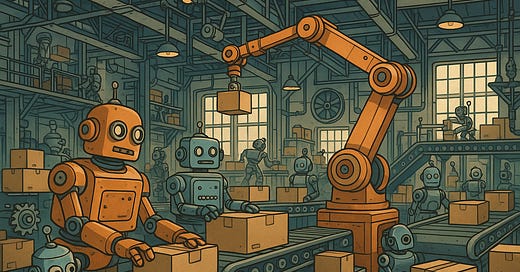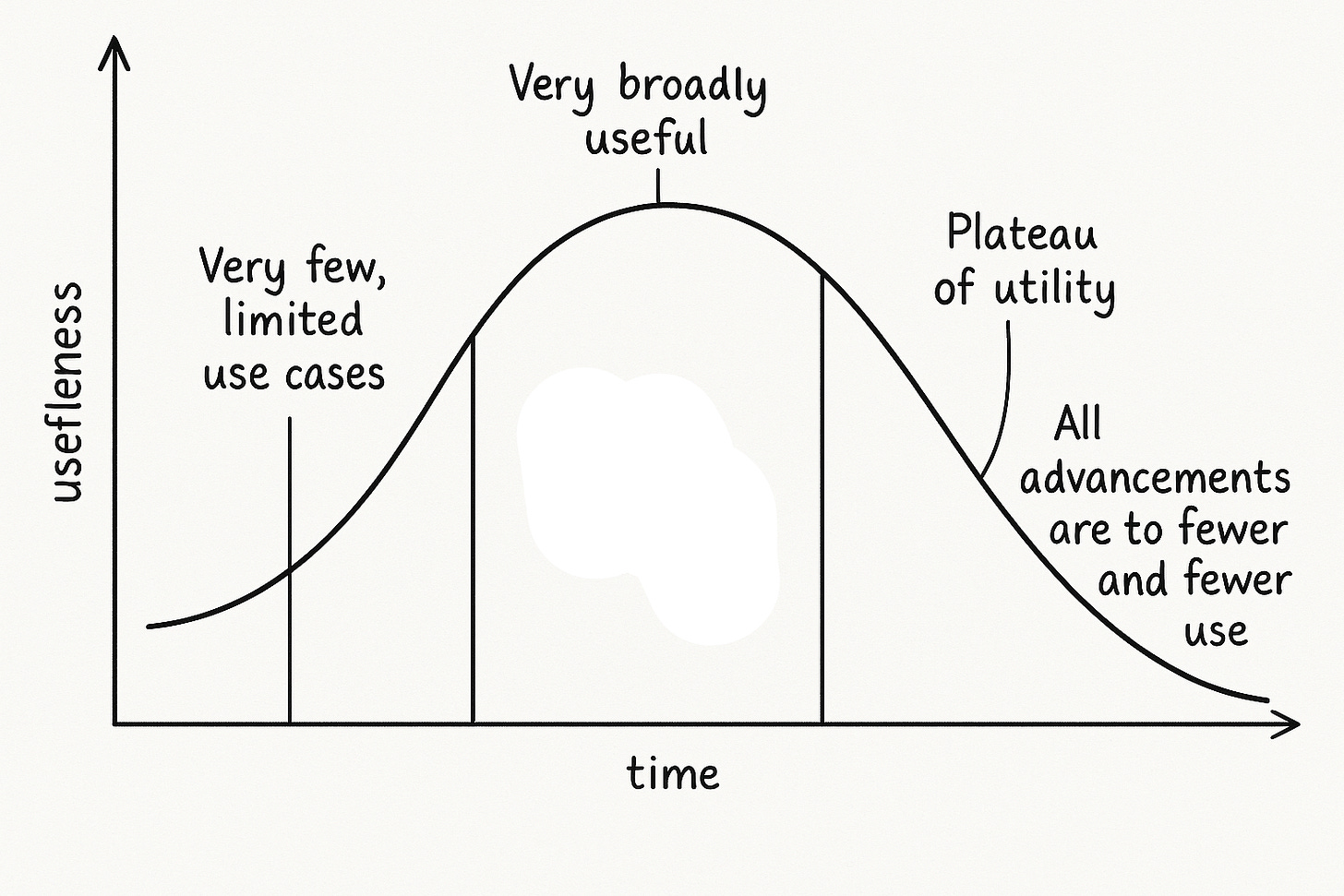New technologies typically start niche, often seeming almost useless. Take gasoline: initially produced as a byproduct of oil refining, it was considered waste and burned off.
Or consider the combustion engine. The earliest versions in the 1860s were bulky, inefficient, and had few practical uses beyond proof-of-concept. Yet, they inspired innovators like Nikolaus Otto, whose four-stroke "Otto engine" revolutionized transportation. Still, it took decades before engines became mass-produced, changing society forever. Today, improvements are incremental, catering only to specific niche needs.
The Evolution of the Computer
The computer’s evolution highlights similar dynamics. Originally, "computers" were people—often women—specialized in calculations. Early mechanical computers occupied entire rooms filled with switches and vacuum tubes. Over time, these machines shrunk dramatically. Now, smartphones possess computing power capable of handling millions of Apollo 11 missions simultaneously.
Computers didn't just shrink physically; their functionality exploded. Today, the world’s most profitable companies—like Intel, NVIDIA, Apple, Microsoft, Alphabet, Amazon, and Meta—built fortunes by leveraging advancements related to CPUs, GPUs, graphical interfaces, software, and networking.
Networking (the internet) and mobile computing launched entirely new markets, enabling platforms such as Uber, Airbnb, Instagram, and Snapchat, fundamentally reshaping our daily lives and global economy.
Platforms and Breakthrough Technologies
Some technologies evolve into platforms—foundational innovations that catalyze entirely new markets. Consider automobiles: they didn't just transport people; they made refrigerated trucking possible, enabling businesses like McDonald’s and fast food globally.
Similarly, networking turned computers from isolated tools into revolutionary communication devices, repeatedly generating entirely new markets and businesses.
Looking ahead, robotics combined with computation, advanced sensors, and increased mechanical dexterity will further transform society. We could soon have robotaxis, automated restaurants, and robotic domestic workers. Such automation could lead to dramatic cost reductions, especially labor costs, possibly reaching record lows by 2040.
Predicting the Future
Predicting exactly where technology will lead us remains challenging. Debates range from anticipating superintelligence within a few years to believing it could take centuries. Current technologies like Large Language Models (LLMs) clearly have transformative potential, evident in their coding and writing capabilities, though they still struggle with consistency.
Historically, initial monetization strategies often overlook the most profitable applications. Google's technology became profitable only after "GoTo," later named Overture, introduced auction-based search ads. Overture’s model, bought by Yahoo for $1.63 billion, paved the way for Google’s multi-billion-dollar business.
Today, numerous companies are attempting similar breakthroughs with LLMs, searching for the optimal combination of profitability and utility. Eventually, the technology will become ubiquitous, commonplace, and fundamental until the next innovation cycle begins.
Final Thoughts
Language technologies like LLMs present a unique challenge: they reach a useful stage almost simultaneously with achieving expert-level capabilities. This small gap suggests that initial excitement and monetization could peak quickly, necessitating integration with complementary technologies to unlock their full transformative potential.
If we look at the computer, and return to the idea that computers were humans who performed large-scale arithmetic, we can better appreciate how far humanity can go without needing to engage in the drudgery of coding.
Civilization has advanced faster and further in all fields of science through the use of mechanical computers instead of human calculation. It's unclear exactly where we'll go from here, but buckle up—things are about to accelerate.






